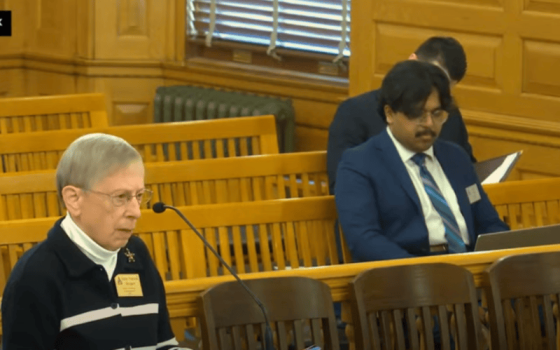MEXICO CITY -- A Catholic priest serving undocumented migrants praised new immigration legislation that would provide more rights and legal protections to the thousands of Central and South Americans traveling through the country toward the United States.
Father Jose Alejandro Solalinde, whose defense of migrants has brought death threats from criminal gangs and immense media attention for his outspoken advocacy, said the new legislation also discards potential sanctions against those working on behalf of migrants.
"All the parties have come out in favor of human beings. This is amazing," Father Solalinde, director of the Brothers of the Road migrant shelter in Oaxaca state, told Radio Formula Feb. 25.
The bill, he added, would "decriminalize" migration.
Provisions in the legislation include new 180-day "migrant" visas for those crossing Mexican territory and an overhaul to the National Immigration Institute to improve staffing and eliminate wrongdoing and to provide migrants with access to health and legal services.
The Senate unanimously approved the legislation Feb. 24. The law now goes to the lower house of Congress for debate.
The legislation represents a step toward improving the treatment and protection of migrants on Mexican territory, where the criminal gangs and drug cartels regularly kidnap migrants for ransom and exploit their fears of denouncing such crimes to the proper authorities -- who, in some parts of Mexico, are complicit with the kidnappers, Father Solalinde has alleged.
Some lawmakers expressed hope the legislation would allow a country with widespread emigration to regain some moral stature when addressing complaints of mistreatment against Mexicans living in the United States and improve perceptions of Mexico in Central America, where governments have complained that little has been done protect their citizens on their northward journeys.
Sen. Carlos Navarrete, leader of the Democratic Revolution Party, called on the lower house of Congress to approve the legislation, "so that we have something we lacked: moral authority ... because what we're giving to Central America, we ask for our countrymen from the United States."
"We cannot criminalize immigration," he added. "We cannot leave the treatment of migrants in the hands of the Federal Police ... like the Border Patrol does with our citizens in the United States."
The legislation was not approved without controversy. A version approved Feb. 22 would have enabled Federal Police to detain migrants based on their immigration status and imposed penalties on employers hiring workers without the proper papers. Approximately one-third of the legislation's points were reserved for further debate and the controversial points were either discarded or modified.
The legislation's passage came as the National Human Rights Commission made public a report showing increased dangers for migrants traveling through Mexico. The report said 11,333 undocumented migrants were kidnapped over a six-month period of 2010 by groups such as Los Zetas, the ex-soldiers blamed for the August 2010 murders of 72 undocumented Central and South Americans on a ranch near the Texas border in Tamaulipas state. The 2010 figure represented an increase over the 9,758 migrants kidnapped over a similar period in 2009.
The kidnappers target migrants to extort ransoms -- sent via money transfers -- from family members already living in the United States, according to the commission. It said it planned to ask the attorney general's office to investigate the role of money transfer services in facilitating the payment of ransoms.




